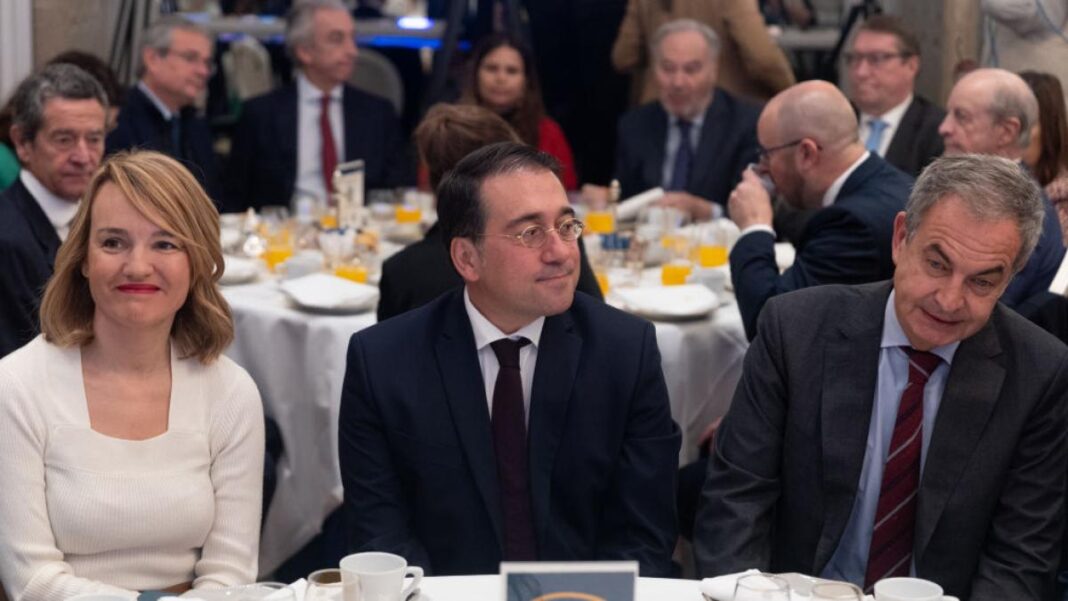BTN News: Spain’s Minister of Foreign Affairs, European Union, and Cooperation, José Manuel Albares, has come to the defense of former Prime Minister José Luis Rodríguez Zapatero amidst growing criticism surrounding his role as a mediator in the ongoing political crisis in Venezuela. The controversy has intensified after the Venezuelan presidential elections on July 28, in which Nicolás Maduro claimed victory—a result that the Venezuelan opposition has denounced as fraudulent.
Albares praised Zapatero’s efforts, asserting that the former Prime Minister has been deeply involved in mediation efforts in Venezuela for a significant period. According to Albares, Zapatero has been in dialogue with both the government and the opposition, actively contributing to the release of political prisoners and attempting to bridge the widening gap between the opposing factions. The minister emphasized the value of dialogue, expressing hope that a resolution to Venezuela’s crisis would emerge from discussions between Venezuelans themselves. While Albares did not confirm whether he had recently communicated with Zapatero, he welcomed any responsible and prudent contributions to the government’s efforts, subtly criticizing the opposition party, PP, for their lack of these qualities.
The situation escalated following Zapatero’s participation as an international observer in Venezuela’s July presidential elections. Representing the ‘Grupo de Puebla,’ an organization that demanded transparency in the electoral process, Zapatero, notably, did not sign the group’s statement calling for the release of the election results. His silence on the matter has sparked significant backlash.
Critics, particularly from the PP, have questioned Zapatero’s motivations, with some even insinuating potential economic interests. Former PNV Senator Iñaki Anasagasti accused Zapatero of “whitewashing a dictatorship,” and former Socialist Prime Minister Felipe González criticized him for not demanding the release of the electoral results by the National Electoral Council (CNE) as other members of the Grupo de Puebla did. Even renowned chef José Andrés joined the chorus of disapproval, arguing that Zapatero was wrong in helping to “legitimize” Maduro’s government.
Despite these criticisms, Albares reiterated Spain’s commitment to a negotiated solution for Venezuela, highlighting ongoing dialogue with both the Venezuelan government and opposition. He also mentioned that the European Union’s foreign ministers would meet in Brussels on August 29 and 30 to discuss the Venezuelan situation. Additionally, Albares stated that Spain would take responsibility for Dominican nationals currently in Venezuela after Maduro ordered the expulsion of Dominican diplomats. Emphasizing Spain’s solidarity with Latin American countries, Albares asserted, “Spain will always be at the disposal of all countries and all the brotherly peoples of Latin America.”
However, the PP remains unconvinced. Alicia García, the PP’s spokesperson in the Senate, accused Albares of maintaining a “low profile” following the Venezuelan elections and of legitimizing Maduro’s regime. She warned that Spain’s failure to recognize the opposition leader Edmundo González as the legitimate winner of the election would align the country with Russia, Cuba, China, or Iran. García provocatively asked, “What does Sánchez owe to Maduro?”
García’s remarks followed Albares’s offer for a bipartisan pact in support of democracy, to which she responded that the PP would only agree if Albares acknowledged that Edmundo González “won decisively” in the Venezuelan elections. The debate grew heated as García criticized the government’s perceived softness regarding what she described as “electoral fraud committed by Nicolás Maduro,” reproaching Albares for not using the term “fraud” during his Senate address.
In response, Albares urged the PP to act responsibly and abandon what he called “noise” and “fake news” regarding Venezuela. He encouraged them to join the government in promoting transparency and democracy to ensure that the will of the Venezuelan people is respected.
This ongoing political debate highlights the complex dynamics of Spain’s foreign policy toward Venezuela and the intense scrutiny faced by Zapatero, whose role as a mediator has drawn both praise and condemnation. With the situation in Venezuela remaining volatile, the coming weeks could be crucial in determining the direction of Spain’s involvement in seeking a resolution to the South American nation’s deepening crisis.


